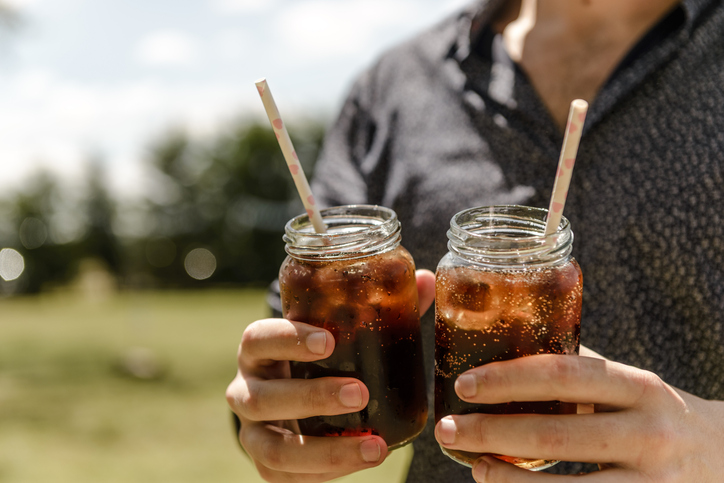If you are reading this blog in a public setting, I bet if you look around you will find a soda product for sale somewhere. Go ahead. I’ll give you 15 seconds to look around. There will be a vending machine, cafe, restaurant, or something offering soda for purchase or available for you. Maybe you are at home and there is soda there.
According to UPI.com, “eight out of every 10 American households buy sodas and other sugary drinks each week…” That means a soda is most likely available to you at most moments of your day. With all of the intense and well-funded marketing tactics, you might be thinking, “this must be a great product and I should drink it when I need a cold beverage. They can’t be bad for me, right?”
Let’s talk about the benefits and consequences of soda and how it can affect our health. Also, while we are talking about soda, some people call it pop, coke, or soft drinks; I really don’t care what it is called. I will refer to it by any of these names. Some websites map out which regions of the United States call it by what name, which is intriguing to see.
The ingredients of soda are where I believe most people would start when evaluating if soda is the right beverage for them. I’ll discuss just a few ingredients that are common in many soda products. Let’s start with the big ingredient when it comes to soda: sugar.
Sugar is a large contributor to the overall flavor and satisfaction of a can of soda. Known as a carbohydrate, sugar gives our body calories and provides our bodies the glucose necessary for all its functions.
Carbohydrates in their whole food form are incredibly healthy for us, when we have no previous health condition disrupting the digestion of it. The carbohydrate in soda, however, is a refined sugar meaning it has been stripped down and reduced to its simplest form. This is known as simple sugar.
This is the same sugar you’ll find in the baking aisles. Simple sugars can more readily absorb into our bloodstream when compared to sugars found in whole foods.
In pop, the sugar is absorbed even quicker into our bloodstream because it is already in liquid form. This can increase our blood sugar quickly. If our bodies are not able to digest the sugar appropriately then this sugar can raise our blood sugar to unsafe levels.
There are sodas out there that contain “zero sugar.” This just means there is no sugar in the soda. To make it sweet, they add artificial sweeteners. There is a large debate about the healthiness of artificial sweeteners. I will not be entering into that debate in this blog post. That blog will come later.
Regardless if artificial sweeteners are good for you or not, they do affect our bodies in ways that I have never heard anyone else talk about. Soda, both sweetened with sugar or with artificial sweeteners, overload our senses and taste buds. By comparison, delicious foods like broccoli and carrots, which are naturally sweet, taste bland and boring after a swig of soda.
This sensory overload affects all of our taste buds. Only intensely flavored burgers, fries, and other candies seem to satisfy us after having a giant 64oz pop. Just try to enjoy a glass of water right after having an orange soda. The flat, comparatively lifeless water will not be as appetizing.
A phrase many dietitians say is,
“Don’t drink your calories.”
While I sometimes disagree with that phrase, in the case of pop, I completely agree. It is true because the liquid substances we drink do not make us feel full like solid food does. Solid food fills our stomach and our stomach tells our brain when it is full. This benefits us by preventing overeating or over consuming calories. Liquids do not give our stomach the same full feeling, so there is no limit to the number of calories being ingested.
The benefits of soda are exactly what you may think—it’s delicious! It is a refreshing and bubbly treat. Soda can be amazing for your mental health if it is used to make a bad situation happy or a celebration.
With that being said, I still believe soda should be categorized properly. This would ensure we would view it as it should be, similar to any other overly sweet and sugary food product. Soda should be labeled like candy and be considered a treat, like once a month (or not at all) kind of treat.
Even if it’s “zero sugar” or “zero calories,” the effect soda has on our body does not only come from the source of its sweetness but also its effect on our minds. Our minds control our choices and our character. Let’s make healthy choices that will benefit both.










